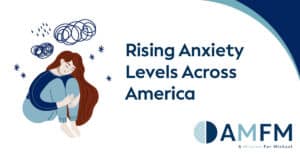Psychologists are becoming increasingly confident that “one size fits all” is not the best approach when it comes to treating depression. Though the most commonly used Major Depressive Disorder treatment for 14 million Americans is antidepressant medication, recent research suggests that individually tailored treatment may provide significantly better results overall for these patients.
Studies Show Effects of Tailored Approach
A recent study at The Family Institute at Northwestern University, conducted by staff therapist and head of cognitive behavioral therapy services Paula Young, PhD, and colleagues, centered around the question that this notion raises: how do you tailor treatment to the individual? The study, which was published in the Journal of the American Medical Association-Psychiatry, explored a certain type of psychotherapy called Cognitive Behavioral Therapy (CBT). This type of evidence-based therapy is commonly used to treat depression and involves patients working together with their therapists to develop skills and techniques to cope with problems and manage emotions. In the study, patients were randomly selected to either receive medication-only treatment for depression or to receive treatment that involved a combination of medication and CBT. The results of this treatment study showed that the patients with recurrent and severe depression saw significantly higher recovery rates when they both received antidepressant medication and participated in CBT—a recovery rate of 72.6% compared to the medication-only rate of 62.5%.
Dr. Young remarked after observing this trend that the results suggest the importance of tailoring treatment for depression. While some with depression may respond well to medication alone, it appears that many would benefit further from incorporating other forms of treatment in addition to medication.
Alternate Treatments to Medication
These results, of course, are not surprising when considering the many factors that are potentially involved in any particular case of depression—be they genetics, social pressures, occupational stresses, drug use side effects, or situational influences. In fact, the National Institute of Health and Clinical Excellence states that depression is “a broad and heterogeneous condition, the prognosis of which is significantly influenced by diverse biological, psychological and social factors not captured well by current diagnostic systems.” Involving additional treatment options for depression other than medication opens up the pathway to individualized treatment significantly; treatment options such as therapy and special skill and technique acquisition carry a tremendous potential for personalization that medication simply cannot duplicate.








